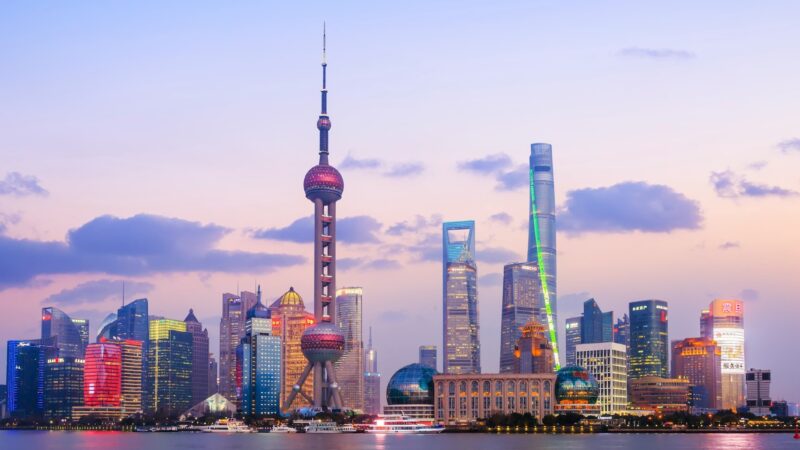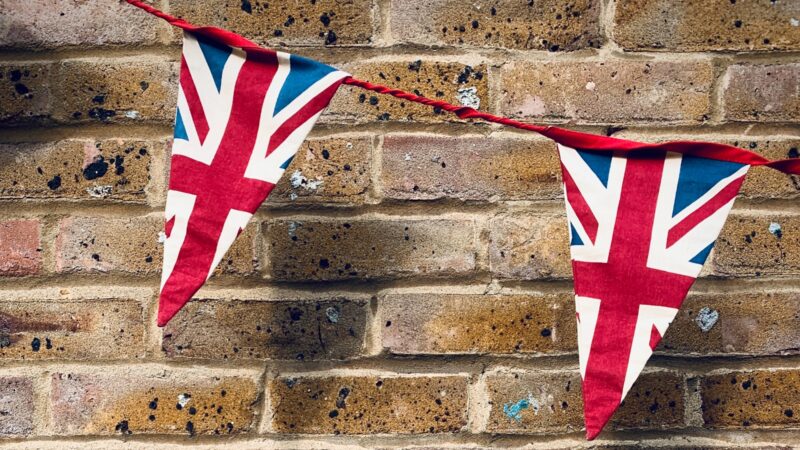The UK’s Place in the World: Strategic Industries, China, and Sovereignty
This article was originally published on 17th November 2021.
The Brexit-leading Conservative government wants to back up the talk of the referendum campaign. Now that the UK has Brexited there’s a practical need to set a plan of action and follow it. A lot of intellectual work was taken care of by just following whatever the EU position was.
Global Britain, sovereignty, trade deals, etc., OK. What’s the plan? Some of that’s answered implicitly. Elizabeth Truss as Secretary of State for International Trade was busy doing trade deals. AUKUS speaks to diplomatic, defence, and geographical focus. COP26 – the UK is supposed to make its name on climate stuff. OK.
This is what the Prime Minister says the plan is. Some key points: greater engagement in the world, securing the UK’s status as a “Science and Tech Superpower by 2030,” and a “tilt to the Indo-Pacific.” This is still getting ahead of itself.
A recent announcement about an old deal, about an investigation into the Nvidia takeover of Arm (originally a British microchip design company, taken over by the Japanese SoftBank) is a good enough starting point for something to think about.
The Cameron and May governments were very permissive of a lot of foreign investments and takeovers e.g. Chinese nuclear power projects, Huawei and 5G, invitation into the Northern Powerhouse. A lot of people are still angry at the sale of state assets under Right to Buy to British people. Why does the sale of much, much larger British companies/assets to foreign interests provoke almost nothing? What about foreign ownership in the housing market, for that matter?
At least the Johnson government has revisited some of these blunders. It also hasn’t put a complete stop to a lot else which contradicts its strategic review. For example, the Chinese takeover of British Steel, the Chinese takeover of the UK’s largest microchip producer, and the Chinese takeover of a major UK graphene producer. Sort yourselves out!
Strategic Industries and China
Start with making a proper assessment of the UK’s assets. What are you working with?
The Johnson government is promising to do a lot of things differently to the Cameron and May governments. When William the Conqueror took over as CEO, he did an inventory check, right down to the kinds of cheese in England.
Napoleon was notoriously obsessed with information.
In the autumn of 1811, the peak of Napoleon’s empire (has France been as well-governed since?) the emperor visited 40 cities in 22 days. This is despite losing three and a half days of travel to gales and floods. He would prevent mayors from giving great speeches and instead ask them questions. Population, death, revenues, forestry, tolls, municipal rates, conscription, civil and criminal lawsuits. Even about how many sentences passed by mayors were annulled by the Court of Cassation, and whether mayors had found means to provide suitable lodgings for rectors.
Would Mayor Johnson have fared well under Napoleon’s questioning? Prime Minister Johnson? Sure, why not? The information Napoleon was looking for gave him clues about the state of the empire, its operational effectiveness, happiness of its citizens, its direction, its capabilities, and what he could draw on. What are the revealing questions you could ask today?
A country’s strategic industries are certainly different from the 1800s.
The pandemic alone should’ve taught the UK that the entire west relies heavily on China for production of a lot of basic medicines. That’s concerning. It certainly relies on China for a lot of manufacturing of basic but important medical equipment too. Mark Zuckerberg’s Meta virtual/augmented reality news is also something to think about.
How comfortable is the UK with the idea of China controlling a lot of technology manufacturing, and easy access to intellectual secrets/innovations?
China is very good at controlling actual reality let alone a virtual one. The China-Taiwan tensions keep brewing. China’s been threatening Taiwan that its military won’t stand a chance if it invades. China is threatening that any outside interference will mean paying a price. Meanwhile, the world relies on Taiwan for semiconductors which go in everything. Xi promises that China and Taiwan will be reunited.
How is Hong Kong doing?
Strategic industries are no longer just about simpler things like coal and steel production for tanks and munitions. They’re also about the materials and methods of fourth and fifth generation warfare, like rare earth metals and this sort of thing.
It seems the Johnson government is at least a little but wiser to China.It’s hard to believe how cosy Cameron was prepared to get with Xi Jinping. They wanted to make Macclesfield (of all places!) the end point of the Belt and Road Initiative.
Have a look at this selfie. Cameron, soy-faced, submissively leaning in. Sergio Aguero’s having a great time, that’s fine. Xi looks like he’s holding his tongue. It’s not a meeting of peers. One has real power and the other doesn’t. This is a picture of the Emperor of China wondering how much longer he has to humour the Gap Yah guy. Is Cameron oblivious? If he is, he’s like that guy who thought he made friends with a wild Alaskan grizzly and got eaten. Does he understand what kind of animal he’s dealing with? Of course, Xi is a silly willy nilly old bear.
If Cameron wasn’t oblivious, was he just resigned to the idea of securing British comfort as a supplicant to China?
When did the west start calling Xi “President” and stop calling him “Chairman”? “Zhuxi” means “Chairman”. Xi is still “General Secretary” of the Chinese Communist Party, a title which originates with Stalin’s own role as General Secretary. That title has its own interesting history. Does “President” hide his shame? Why is the UK still sucking up to a communist by using a less embarrassing and false translation of his title?
Anyway, never mind China, what about everyone else?
Sovereignty
The UK doesn’t need to pursue absolute autarky, but it will have to think about what its strategic industries are and how much control it wants over them for how much independence.
Alignment with the US-led order has been convenient for the UK’s comfort. Countries which don’t submit to the US (e.g., Russia, Iran, North Korea, Iraq, Syria, Venezuela), find themselves poorer and squeezed. They haven’t helped themselves either. The obvious exception is China. Is it too big? Did Nixon miscalculate? The US was supposed to be a military power, China an economic one. That unspoken deal doesn’t seem to be holding. That calculation is probably changing too for everyone else as the US becomes relatively weaker and China relatively stronger.
For now, easy prosperity clearly hasn’t been everything to every country. Not everyone follows the first rule of the Satanic bible. All hail GDP, the one true measure of successful government! Sovereignty means answering to nobody else, and that’s valuable too. It has also meant that these countries develop and control a lot of their own technology. Russia and China in particular. Though it’s also a US protectorate, Israel is notable too for its self-reliance and the level of independence that affords it, regionally, at least.
Can the UK become a “Science and Tech Superpower” by 2030?
For everything it would need to achieve that, how much does it need to learn? How much of the basics does it need to relearn? Outsourced manufacturing and international, mobile academia are not a stable starting point. Knowledge fades with the people who have it, who today can move and work from anywhere.
What ties these people to the UK? What stops them from working for someone else?
The UK’s place in the world will be affected by how much it can bring under its own control.
What’s the plan?
Does anyone have any confidence that there’s any one person in the government who properly understands 1) the UK’s own state of affairs, 2) how that sits internationally, 3) what the reasonable goals are, 4) how to work toward them, and 5) has the power to make it happen?
Until the UK has that it is getting ahead of itself in any discussion about what its place in the world should be.





The Riots: a working-class view
Back in the fourteenth century, England’s lowest class enjoyed the greatest piece of luck it has ever had: the arrival of the Black Death. True, most of us were wiped out, but life became so much better for those who survived. Anyone who wanted our labour now had to compete for it and offer more than their competitors did. These inducements (today we call them wages) went up and up because workers had become so scarce. Such was the plight of the working class in those days that it took a lethal disease that wiped out half of humanity to improve our lot; something which should teach us the importance of the size of the labour pool: how the amount of available labour can be balanced to give both sides a fair deal, or skewed one way or the other to cause economic and social disruption.
Since 1997, the year of the coming to power of New Labour, it has been the policy of every government to saturate the British economy with workers from foreign sources, thus greatly expanding the amount of available labour. This means every lower-skilled, less educated, less qualified worker’s bargaining position and job security were jeopardised. It should be obvious that in a free market – in fact in any endeavour where there is competition – there will be rivalry between the contenders. There will be resentment toward challengers who threaten one’s standard of living, or even one’s very capacity to earn a living. Recently this resentment boiled over and numerous riots occurred around the country. They happened because of what has taken place in Britain over decades: the reckless pursuit of profit by means of reducing labour costs at the expense of (and with no concern for) social cohesion. A ruthless, imported form of capitalism has taken over and sacrificed a section of what is supposed to be one nation in order to benefit another part of that nation. The Left of yesteryear called this class conflict, a term which our modern and very bourgeois Left do not care to use these days; they prefer cultural conflict to class conflict, possibly because so many modern Leftists are themselves millionaires and discussions about wealth inequalities would embarrass them. Populists describe the division of the classes as the elite versus the people, and the American Right has enjoyed success with this message, but whichever terminology one prefers, it is clear that here in Britain what was once arguably one nation has now unarguably been cleaved in two.
Although Labour has traditionally been the party of mass immigration, for the last fourteen years immigration ballooned while a Conservative party was in power. The drama of small boats ferrying illegal migrants across the channel was really just a footnote to (and perhaps a distraction from) a large amount of quite legal immigration rubber-stamped by the Tories. The simple truth about immigration is this: enormous numbers of foreign workers come and settle in this country because British politicians want them to. Mass immigration means there is no pressing need to innovate, no need to invest, no need to waste money training or educating British people, no need to worry about productivity: one can merely import cheap ready-mades, and then carry on importing them. It is the easy option and our politicians have been taking it for years. Any economic growth Britain has achieved has been a sham; merely a growth in population. The group which has suffered most is of course the working class, those who are most vulnerable to low-skilled immigration; a working class that these days has little to no political representation.
Jacob Rees-Mogg recently condemned the working-class rioters, saying that such behaviour might be justified in a dictatorship but not in a democracy like Britain, where peaceful protest is permitted. The problem is of course that protesting achieves nothing. In fact, in modern Britain, voting achieves basically nothing. In 2016, during the referendum on our membership of the European Union, the Leave campaign was only put on the path to victory when the focus was changed from important but philosophical arguments about sovereignty to the issue of immigration. After the vote was won, however, a strange thing happened. ‘I never claimed immigration would come down,’ said Daniel Hannan immediately after the electorate had voted to get immigration down. David Davis said that immigrants would be ‘needed for many years’ and Michael Gove praised how immigrants raised educational standards. If one examines the promises made by Brexiteers one sees that they were never promises. They were not even clear statements, merely hints that could be interpreted in different ways. None of the Brexiteers promised to stop immigration. None of them even promised to reduce it. They promised merely to control it. The word ‘control’ is loved by politicians because it means everything and nothing at the same time. Voters took it to mean that immigration would be reduced, but it could just as easily have meant that it would be left as it was. Perhaps, it could mean that it would be increased – which, incredibly, is what happened, despite a majority in the highest turnout for a UK-wide referendum in British electoral history.
With free movement from the EU interrupted, workers were now imported from the rest of the world. Migrants from very distant and very different cultures would come here in increasing numbers; and because these people were from such distant parts of the world they belonged to different races. This meant that unlike the Poles, the Hungarians, the Lithuanians etc., these foreign migrants would be instantly recognisable as such, from a distance, without them having to utter a single foreign-accented word. And so it is that riots which are economic in cause, which are the consequence of choices made by governments, can appear to be purely racist uprisings – and safely dismissed as such by sanctimonious politicians and their media. By these means a truth has been officially established: that the riots were a temporary madness caused by wicked fascists exploiting the gullibility of working-class people.
The truth however is that in this democracy which Jacob Rees-Mogg believes we live in; the working class are not allowed to vote in their economic interest. Their voice and their interests are repressed. In any general election in the UK there are only ever two parties that have a chance of being elected: the Labour Party, which enthusiastically believes in immigration, and the Conservative Party which believes in it with equal enthusiasm but pretends not to. There has been a convergence of self-interest. First, the greed of a Conservative Party that cares only about its enrichment and which despite its reputed belief in “faith, flag and family” is happy to see the British natural environment, British culture, British traditions, British family life, British history, British ownership, British democracy, British self-respect and the British working class all ruined, each of them being sacrificed in the scramble for quick profit at any cost. And then there is the greed of the Labour Party. This party is, in material terms, as rich and privileged as the Conservatives but is greedy too for moral glory. It wants to be loved by people who matter (educated, cultured people of taste) and so it haughtily condemns the primitive rage of the uneducated people with ugly lives and values who live below. By the magic of media, the material self-interest of the privileged becomes a noble cause. The expansion of the labour pool and the crippling of the bargaining position of British workers is shown as a moral crusade; the pursuit of diversity, the bringing about of a glossy-eyed, handholding, multi-coloured, multi-lingual paradise in which the elite are ‘enriched’ by other cultures while the ferocious competition for jobs pauperises the working class.
Democracy is more than just a word. It is the most efficient way of organising a society ever devised. It balances competing interests by making them visible and enabling them to negotiate. It vents the pressures that create conflict. What the people would have wanted, and would have accepted had anybody in our alleged democracy bothered to ask them, was a moderate level of immigration that would have benefited a moderated capitalism; a capitalist system in which those enjoying extreme levels of wealth and those suffering extreme levels of hardship were both pulled back toward a civilised mean; a more cohesive, moderately patriotic Britain in which all get a just share of everything; in which those who do more and achieve more rightly get more, but not an immoral amount more. In other words, a Britain that was one nation – not the theatre of tribal warfare it is today.
Photo Credit.